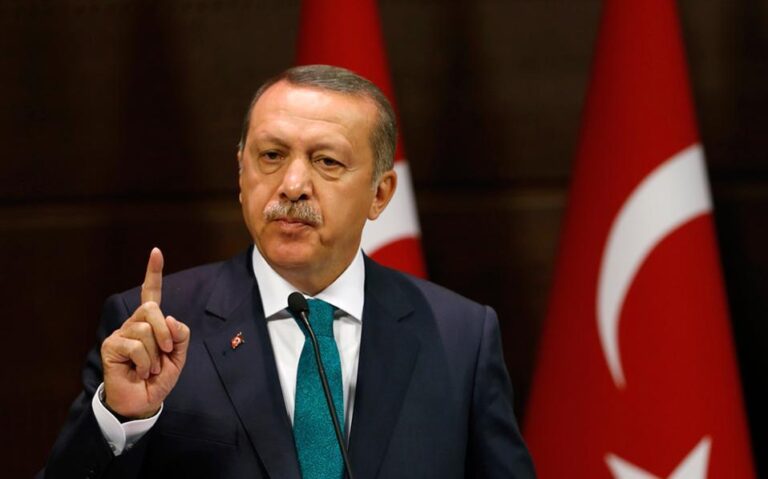U.S. & Greece: Cementing A Closer Strategic Partnership
JINSA
January 30, 2020
JINSA Eastern Mediterranean Task Force
Dormant for decades, the Eastern Mediterranean is back as a cockpit of competition, and concerted U.S. reengagement with the region is increasingly necessary. This imperative is most evident when it comes to America’s relations with Greece.
More and more, Athens is becoming a crucial, pro-U.S. geopolitical actor at the center of every key regional security issue. The primary driver of regional change has been Turkey’s transformation under President Erdoğan from a democratic and reliable NATO partner to a pro-Russian autocracy hostile to the West. A major potential flashpoint between Turkey and its neighbors Greece, Cyprus, Israel and Egypt comes from the simultaneous discovery of considerable natural gas reserves in the Eastern Mediterranean.
These major regional developments have helped drive a fundamental reorientation of Greece’s foreign policy. There is growing national consensus in Athens that a strong relationship with the United States should form the bedrock of Greece’s security. Greece aspires to take over Ankara’s role as the southeastern bastion of the Western alliance, and to become a diplomatic and economic hub interlinking Europe and other growing regional players like Israel, Cyprus and Egypt.
Yet, Greece needs deeper U.S. cooperation if it is to become a platform for projecting American power and promoting regional stability. Our policy project has developed a comprehensive set of recommendations for U.S. policymakers to bolster this expanding bilateral relationship.
The United States should go beyond rhetorical support for Greece’s and Cyprus’ trilateral diplomatic fora with Israel and Egypt. Washington should also strengthen Greece’s ability to defend U.S. interests by increasing bilateral military-to-military ties, including by providing meaningful amounts of foreign military financing (FMF) for Greece to purchase U.S. weapons and materiel. Depending on the trajectory of relations with Turkey, American policymakers should also consider how they might strengthen the U.S. security relationship with Cyprus, which until December 2019 was largely blocked by a U.S. arms embargo. Consideration of additional steps would have to be undertaken in conjunction with an assessment of broader U.S. efforts to resolve the Cyprus issue as a whole. The United States should explore options to bolster its own forward military presence in Greece, and should view Greece and potentially Cyprus as viable, and reliable, options for relocating U.S. military assets currently deployed in Turkey. With Greece indicating its willingness to host most or all these forces, American policymakers should explore relocating some forces to Greece and develop options for further relocations in the event that their continued presence in Turkey becomes unsustainable.
Click here to read the report.
Eastern Mediterranean Policy Project Co-Chairs
Amb. Eric Edelman
Former Under Secretary of Defense for Policy
Gen Charles “Chuck” Wald, USAF (ret.)
Former Deputy Commander of U.S. European Command
Eastern Mediterranean Policy Project Members
Gen Philip M. Breedlove, USAF (ret.)
Former NATO Supreme Allied Commander and former Commander of U.S. European Command
Gen Kevin P. Chilton, USAF (ret.)
Former Commander, U.S. Strategic Command
Svante E. Cornell
Policy Advisor, JINSA Gemunder Center for Defense & Strategy
ADM Kirkland H. Donald, USN (ret.)
Former Director, Naval Nuclear Propulsion Program
VADM Mark Fox, USN (ret.)
Former Deputy Commander, U.S. Central Command
ADM Bill Gortney, USN (ret.)
Former Commander, North American Aerospace Defense Command (NORAD)
John Hannah
Former Assistant for National Security Affairs to the Vice President; JINSA Gemunder Center Senior Advisor
Reuben Jeffery
Former Under Secretary of State for Economic, Business and Agricultural Affairs
Alan Makovsky
Former Senior Professional Staff Member at U.S. House Foreign Relations Committee
GEN David Rodriguez, USA (ret.)
Former Commander, U.S. Africa Command
Lt Gen Thomas “Tom” Trask, USAF (ret.)
Former Vice Commander, U.S. Special Operations Command
Read More



